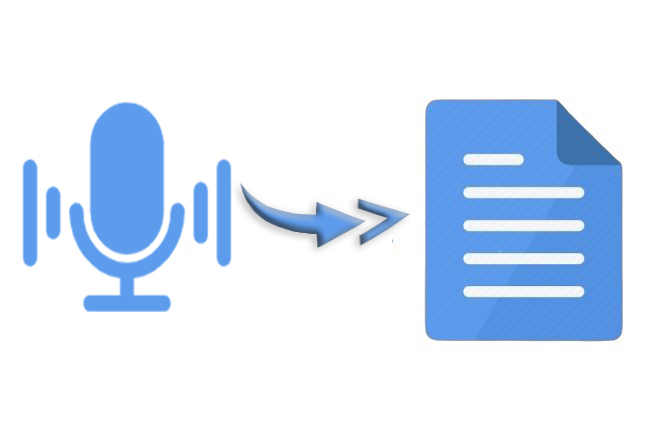Unlocking the Power of Your Voice: 5 Free Speech-to-Text APIs to Boost Your Productivity
Have you ever found yourself wishing for a personal assistant to transcribe your thoughts and ideas while you work? Well, with the latest advancements in technology, that dream can become a reality. Thanks to the power of speech-to-text APIs, you can now convert your spoken words into text in real-time! If you’re tired of typing away at your keyboard or constantly switching between different apps and devices, these free speech-to-text APIs are here to streamline your productivity. In this article, I’ll be highlighting five top-notch options that will take your productivity game to the next level. Get ready to unlock the full potential of your voice and start working smarter, not harder!
So, speech to text api free?
1. Google Cloud Speech-to-Text API: Google Cloud’s speech-to-text API uses advanced machine learning models to accurately transcribe audio into text in over 120 languages and variants. It also offers real-time streaming capabilities for live transcription.
2. IBM Watson Speech to Text API: IBM Watson’s speech-to-text API boasts high accuracy rates, customizable language models, and the ability to handle noisy environments and different accents.
3. Amazon Transcribe API: Amazon Transcribe is a highly accurate and scalable speech recognition service that can convert audio files or streams into text in multiple languages. It also has built-in features for speaker identification and punctuation formatting.
4. Microsoft Azure Speech Services: Microsoft Azure’s speech services offer both cloud-based and on-premises options for converting spoken words into written text with industry-leading accuracy rates. It also includes support for custom vocabularies, profanity filtering, and more.
5. Deepgram API: Deepgram utilizes deep learning technology to provide fast and accurate transcription of audio files in multiple languages, including low-resource ones like Mandarin Chinese or Russian dialects. It also allows users to train their own custom models for specific use cases.
These free speech-to-text APIs are powerful tools that can greatly increase productivity by automating the tedious task of transcribing audio into written text. They all offer high levels of accuracy, customizable features, multi-language support, and some even have real-time streaming capabilities.
By incorporating these APIs into your product or workflow, you can save time and resources while improving efficiency and accessibility for individuals who may have difficulty typing or reading written content.
Whether you need a quick solution for live transcription during meetings or events or a more robust tool for handling large volumes of recorded audio files, these APIs have got you covered with their advanced technologies and user-friendly interfaces.
So, why waste time manually transcribing when you could be using one of these top-notch speech-to-text APIs? Give them a try and see how they can take your productivity to the next level.
Understanding Speech-to-Text APIs and their Role in Enhancing Productivity
Speech-to-text APIs have transformed the way we interact with technology by converting spoken language into written text. Imagine speaking your thoughts aloud and watching them materialize on screen—this is possible thanks to these powerful tools. They utilize advanced algorithms and artificial intelligence to analyze audio signals, identifying words and phrases with remarkable accuracy. For instance, when you dictate an email or take notes during a meeting, these APIs can seamlessly transcribe your speech in real-time, sparing you from tedious typing tasks. This not only saves time but also allows for greater focus on the conversation at hand.
Moreover, speech-to-text technology enhances productivity across various sectors. In healthcare settings, doctors can quickly document patient information without interrupting their workflow; they simply speak their observations. In education, students who struggle with writing can express their ideas verbally while still producing quality work. The impact of this technology is widespread:
- Improved accessibility for individuals with disabilities
- Increased efficiency in professional environments
- Enhanced communication across different languages
Overall, integrating speech-to-text APIs into daily tasks empowers users to communicate more freely and efficiently than ever before.

Exploring the Five Best Free Speech-to-Text APIs for Boosted Efficiency
In the ever-evolving world of technology, speech-to-text APIs have emerged as powerful tools that transform spoken words into written text. These interfaces allow users to dictate their thoughts and ideas instead of typing them out, making communication faster and more efficient. Imagine being able to speak naturally while your device effortlessly captures every word with remarkable accuracy! Some popular choices include Google Cloud Speech-to-Text and IBM Watson Speech to Text. Both offer robust features like language support and punctuation detection, enhancing user experience significantly.
Many developers turn to these free APIs for various projects because they can save time and resources. With services like Microsoft Azure’s Speech API or Mozilla’s DeepSpeech, creators can easily integrate voice recognition capabilities into their applications without hefty costs. Additionally, using an open-source option like DeepSpeech allows greater flexibility for those who want total control over their software landscape. The ability to convert speech into text not only improves productivity but also makes content creation accessible for everyone—from students writing essays to professionals drafting reports.
Overall, leveraging these tools efficiently transforms how we interact with technology in our daily lives, promoting seamless communication across different platforms while maximizing efficiency.
Read also: tts engine
Choosing the Right Free Speech-to-Text API to Meet Your Productivity Needs
When it comes to enhancing productivity, selecting the right free speech-to-text API can make a world of difference. These tools allow users to convert spoken words into written text effortlessly, saving time and effort in note-taking or transcription tasks. It’s essential to consider factors such as accuracy, language support, and ease of use. For instance, some APIs excel at recognizing different accents or dialects, which is crucial for diverse teams or global applications. Additionally, you should check if the service supports various languages if you’re working in a multilingual environment.
Another vital aspect is integration capabilities; your chosen API should seamlessly fit into your existing workflow. Look for options that work well with popular platforms like Google Docs or Microsoft Word so that you can easily incorporate the technology without disrupting your routine. Moreover, user experience plays a big role—simple interfaces often lead to greater efficiency when transcribing large amounts of audio data. Some noteworthy features might include real-time transcription and customizable vocabulary lists that enhance recognition accuracy even further.
Ultimately, taking the time to explore these elements will ensure that you find an API tailored perfectly to boost your productivity while accommodating your unique needs.
How Leveraging Free Speech-to-Text APIs Can Transform Your Work Approach
Imagine sitting down at your desk, ready to tackle a long list of tasks. Instead of typing out every word, you can simply speak your thoughts and watch as they magically appear on the screen through speech-to-text technology. This is where free Speech-to-Text APIs come into play, offering an innovative way to streamline your work process. With just a microphone and some software, you can transform spoken words into written text with impressive accuracy. This not only saves time but also allows for clearer communication of ideas without the distraction of typing errors. Whether you’re drafting emails or brainstorming project concepts, this tool enhances focus by letting creativity flow without interruption.
Moreover, using these powerful APIs opens up new avenues for collaboration and accessibility in diverse environments. Team members can contribute their thoughts from anywhere—whether they’re in the comfort of their homes or on-the-go—by simply voicing their opinions instead of writing them down.
- Accessibility: Helping those who find it challenging to type.
- Efficiency: Reducing time spent on mundane tasks.
- Creativity: Encouraging spontaneous idea generation.
By integrating this technology into daily routines, individuals and teams alike can elevate productivity while fostering a more inclusive workspace that values each voice equally.
You may also like: dictaphone recorder
Read also: best hearing aid for speech recognition



